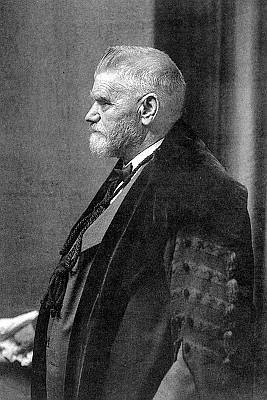Jean-François Heymans
Jean-François Heymans (28 May 1892 – 18 July 1968) was a prominent Belgian physiologist known for his groundbreaking work in the field of pharmacology and physiology. His research significantly contributed to the understanding of the autonomic nervous system and its effects on cardiovascular and respiratory functions. Heymans' work laid the foundation for modern pharmacology and has had a lasting impact on the development of drugs targeting the autonomic nervous system.
Early Life and Education[edit | edit source]
Jean-François Heymans was born in Ghent, Belgium, into a family with a rich history in the medical sciences. His father, Corneille Heymans, was also a noted physiologist. Jean-François pursued his medical studies at the University of Ghent, where he showed early promise in research and academia. After completing his medical degree, he furthered his studies and research in physiology, focusing on how the body's internal environments are regulated.
Career and Research[edit | edit source]
Heymans' career was primarily associated with the University of Ghent, where he served as a professor and later as the director of the Physiology Institute. His research interests were broad, but he is best known for his work on the chemoreceptor reflex mechanism that controls the sensitivity of the body to levels of oxygen and carbon dioxide in the blood. This work was pivotal in understanding how the body maintains homeostasis and has applications in understanding and treating conditions such as hypertension and sleep apnea.
One of his most significant contributions was the discovery of the role of the carotid body and aortic body in the reflex control of breathing. This discovery was instrumental in the development of treatments for respiratory disorders and in the surgical management of certain cardiovascular diseases.
Awards and Honors[edit | edit source]
Jean-François Heymans' contributions to science were recognized with numerous awards and honors throughout his career. His achievements were acknowledged both in Belgium and internationally, reflecting the global impact of his work.
Legacy[edit | edit source]
Jean-François Heymans left a lasting legacy in the fields of physiology and pharmacology. His research has influenced generations of scientists and clinicians, and his methodologies and discoveries continue to be a cornerstone in the study of the autonomic nervous system and its implications for health and disease.
His work also paved the way for future research in cardiovascular and respiratory physiology, contributing to the development of new therapeutic approaches and interventions for diseases affecting these systems.
See Also[edit | edit source]
Search WikiMD
Ad.Tired of being Overweight? Try W8MD's physician weight loss program.
Semaglutide (Ozempic / Wegovy and Tirzepatide (Mounjaro / Zepbound) available.
Advertise on WikiMD
|
WikiMD's Wellness Encyclopedia |
| Let Food Be Thy Medicine Medicine Thy Food - Hippocrates |
Translate this page: - East Asian
中文,
日本,
한국어,
South Asian
हिन्दी,
தமிழ்,
తెలుగు,
Urdu,
ಕನ್ನಡ,
Southeast Asian
Indonesian,
Vietnamese,
Thai,
မြန်မာဘာသာ,
বাংলা
European
español,
Deutsch,
français,
Greek,
português do Brasil,
polski,
română,
русский,
Nederlands,
norsk,
svenska,
suomi,
Italian
Middle Eastern & African
عربى,
Turkish,
Persian,
Hebrew,
Afrikaans,
isiZulu,
Kiswahili,
Other
Bulgarian,
Hungarian,
Czech,
Swedish,
മലയാളം,
मराठी,
ਪੰਜਾਬੀ,
ગુજરાતી,
Portuguese,
Ukrainian
Medical Disclaimer: WikiMD is not a substitute for professional medical advice. The information on WikiMD is provided as an information resource only, may be incorrect, outdated or misleading, and is not to be used or relied on for any diagnostic or treatment purposes. Please consult your health care provider before making any healthcare decisions or for guidance about a specific medical condition. WikiMD expressly disclaims responsibility, and shall have no liability, for any damages, loss, injury, or liability whatsoever suffered as a result of your reliance on the information contained in this site. By visiting this site you agree to the foregoing terms and conditions, which may from time to time be changed or supplemented by WikiMD. If you do not agree to the foregoing terms and conditions, you should not enter or use this site. See full disclaimer.
Credits:Most images are courtesy of Wikimedia commons, and templates Wikipedia, licensed under CC BY SA or similar.
Contributors: Prab R. Tumpati, MD

